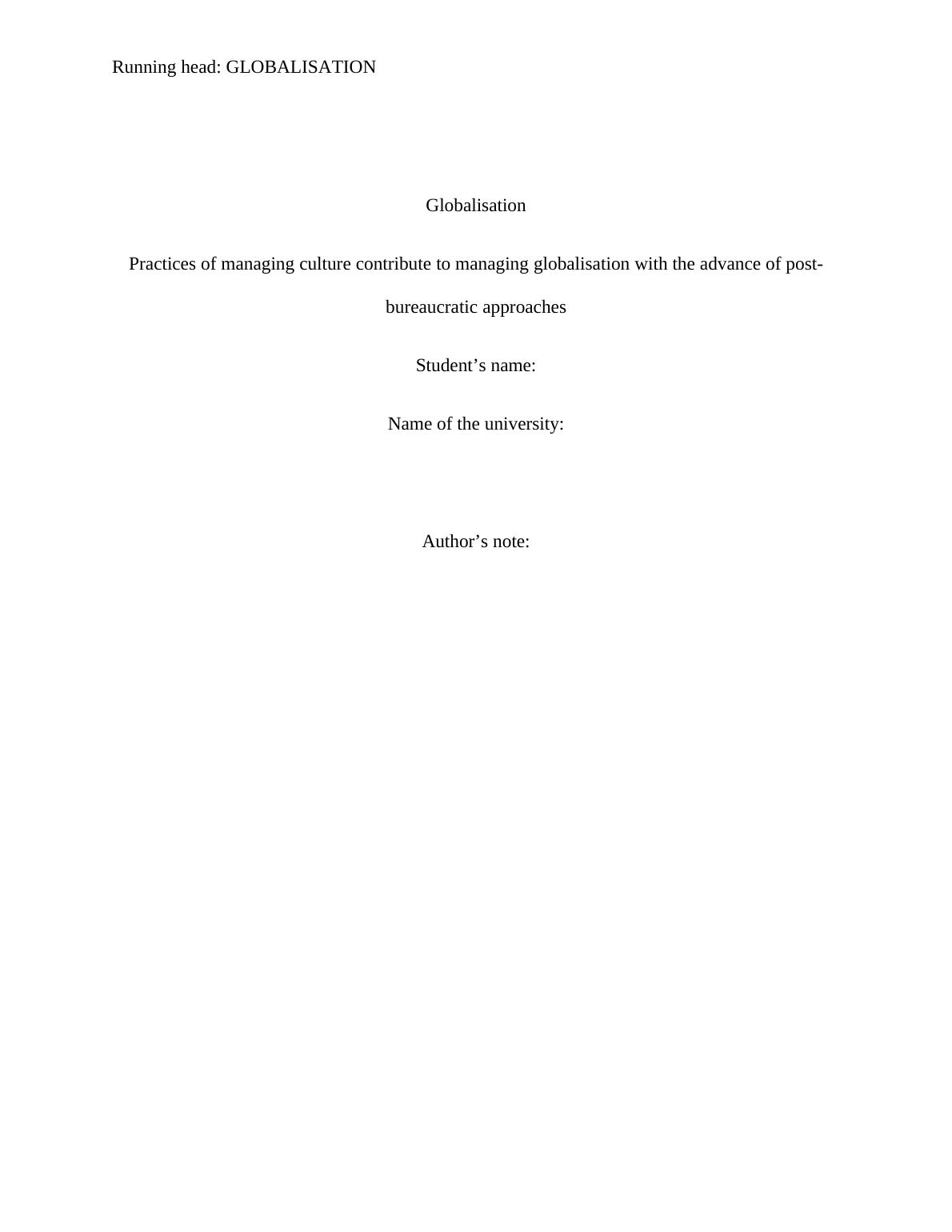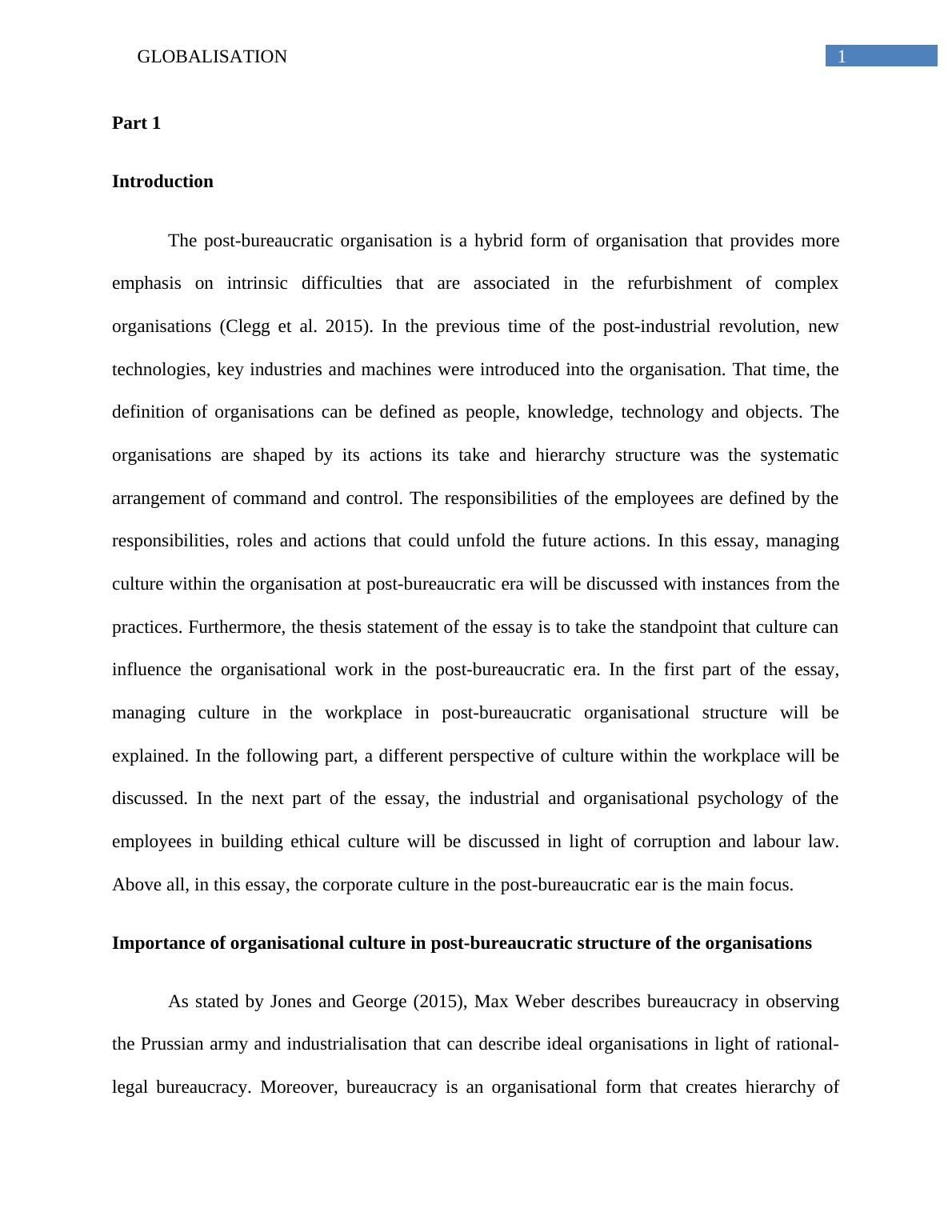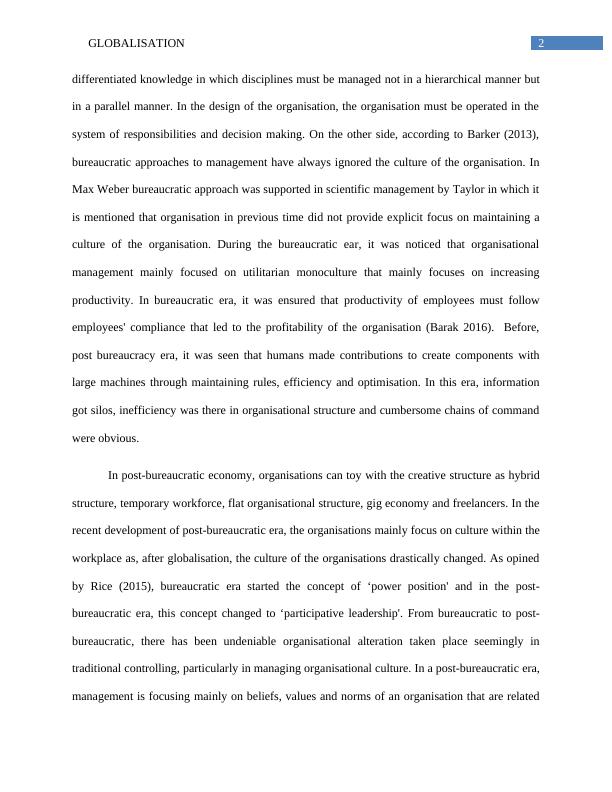Essay on Globalisation Practices of Managing Culture
10 Pages2519 Words44 Views
Added on 2020-05-08
Essay on Globalisation Practices of Managing Culture
Added on 2020-05-08
ShareRelated Documents
End of preview
Want to access all the pages? Upload your documents or become a member.
Organisation Theory: Classical and Neoclassical Approaches, Contemporary Marketing, Japanese Approach, Organizational Learning and Culture Excellence
|8
|2696
|254
Organizational Culture and Management Approach
|7
|2218
|170
Organisational Control: Bureaucratic and Cultural Control
|10
|2836
|193
Organisation Theory: Classical and Neo Classical Approaches
|16
|5197
|89
Organizational Theory and Management Ideologies
|7
|1721
|345
Effective Workplace Communication: Theories and Obstacles
|10
|1869
|317



